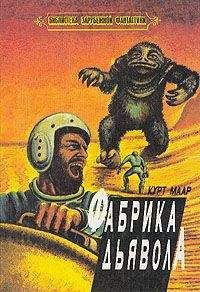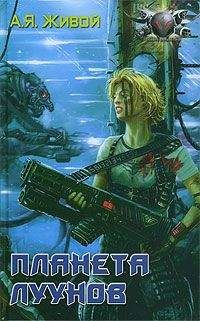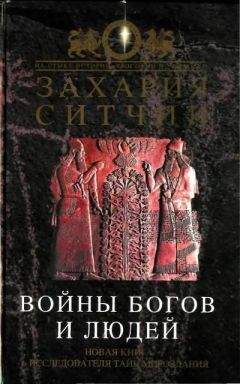Fairstein, Linda - Silent Mercy
“How did I miss it all these years?” The drive was empty and Mike was cruising down the center lane.
“It must have been grand when it was built two hundred years ago, but once the neighborhood deteriorated, brick and mortar walls were put up to protect it from vandalism. You’ve probably seen it, but didn’t know what was behind the walls.”
“And it’s still active?”
We had passed the United Nations building, and the earliest glimmer of light reflected from all the glass of the Secretariat onto the East River. The city was beginning to wake up and shed the eerie quiet of the still night, although only a few tugboats were moving on the choppy waterway.
“The Irish and Italian congregants have long given way to the Dominicans and Chinese, but it’s still active.”
“You know anything else about this girl you’re not telling me?”
“Quit it, Coop. We’ll be there in five. You know all I got.”
The lights on the Manhattan and Brooklyn Bridges danced above the crossing cars and trains as we sped toward them.
“You think Battaglia will really try to connect this to me?”
“We’ll know the minute he demands to put a bodyguard on your ass.”
“That could be you. We’re working together anyway.”
“Been there. Never doing that again.”
“What’s the part you didn’t like?”
Mike took his eyes off the road and grinned at me. “Think of a better question.”
“All right. What’s the difference between a church and a cathedral? I thought St. Peter’s in Rome was the largest church in the world, but St. John the Divine claims to be the largest cathedral.”
“St. Peter’s isn’t a cathedral. It’s a papal basilica. Holds sixty thousand. Aunt Eunice took me over every square foot of it. Said more novenas than the pope. A cathedral holds the seat of a bishop.”
“So this little church in NoLita is a cathedral?”
“Not so little in its day. And yes, it was built to be the seat of the bishops of the newly formed Diocese of New York. Held that honor until part of it was destroyed in a fire. Enough wealthy Catholics had moved uptown so that the bishop, too, headed to Fifth Avenue. The new cathedral is St. Patrick’s to most of the world. But this beauty is the original.”
We were off the FDR, threading the narrow one-way roads of the Lower East Side to get to the corner of Mott Street. Mike was on the phone to the sergeant in charge of the Night Watch Unit. “Where are you exactly? We’re just a few blocks away.”
He got an answer as they talked back and forth about how many men were on hand and what reinforcements were needed.
The streets we drove through held a mix of the modern and remains of the scores of tenement buildings that had warehoused the immigrants who poured into this city in the 1880s and thereafter. Families crowded together — usually several generations plus in-laws and boarders — sharing toilets in the hallways and bathtubs in their kitchens. Before World War I, this densely populated area of the Lower East Side was home to five hundred synagogues and religious schools. I wondered if that fact would figure into the case of the woman who’d been found at the old cathedral.
“You check the crypt, Manny?” Mike asked the sergeant on the phone.
I drained the coffee cup and stashed it in an old paper bag. “This place has an underground crypt? I’ve sworn off those. I’ll wait in the car.”
“See you in three, Sarge. At the back entrance, on Mulberry Street.”
The pizza parlors and bodegas on Prince had been replaced by fancier latte shops and designer boutiques, as SoHo style crept into the old neighborhood.
“That’s the front door, on Mott, Alex. See it?”
The high wall shielded most of the church from view, until Mike parked the car and walked me to the wrought-iron gates that fronted the old building. There was a restrained simplicity in the design of the cathedral, easy to see how I had failed to notice though I had passed by it many times. From this side, there was no sign of police activity.
We cornered the street again and continued onto Mulberry. The investigation was still small, because of the remote location and the time of morning. The morgue van was already parked in the middle of the street, and several RMPs — radio motor patrol cars — blocked off both ends.
Manny Chirico was the sergeant in charge of Night Watch, the detail that caught all the major crimes on the midnight shift, sometimes getting to a murder scene before homicide detectives were available. He was one of the smartest men on the job. Both cops and prosecutors liked working with him, which wasn’t always the case.
“Hey, Mike. Alexandra,” Manny said. “I didn’t bother to call the South. Had a briefing on your case before we turned out and there didn’t seem to be any doubt they’re related.”
“Thanks for sparing me that,” Mike said. This half of the island was the jurisdiction of Manhattan South Homicide, but there was no point bringing another layer of supervision into this case. “Where is she?”
Manny pointed first to the sidewalk adjacent to a small stone archway that was attached to the church. “Blood, don’t you think?”
Mike squatted and looked at the strip of dark red stains that dotted the cement. “Probably so.”
Then he stepped through the threshold and we followed, emerging from the darkened entryway to a short hall lined with windows. Outside was a tiny eighteenth-century cemetery, fenced in by the wall, with several dozen primitive granite headstones — weathered and eroded by age. Most of them were leaning as though about to topple over with a gusty March wind.
“There she is,” Manny said.
CSU had beaten us here this time, and Hal Sherman was already at work taking photos of the body.
“How do you get into the cemetery?” I asked. Many of the centuries-old churches of lower Manhattan still had adjacent graveyards. Trinity Church and St. Paul’s were even tourist attractions, and my route to the DA’s Office took me past the last man-made remnant of Manhattan’s seventeenth century — the cemetery of Sephardic Jews from Brazil who immigrated here in the 1600s, neglected but still standing on St. James Place.
“This entrance is the only way, Alex, but it was gated and locked.” Manny led us down the corridor and onto the damp soil of the burial ground. “Maybe it was a couple of men — one helping the other scale the wall and carry the girl over. I’ve got Crime Scene checking out this old oak inside the walls, as well as the tree branches that overhang from Prince Street, for any trace evidence.”
“Still liking my orangutan theory, Coop. The guy must have been swinging from a tree.”
The exposed body of the young woman lit up in the flash of the camera. I stood about three feet from her, taking the measure of her young life. She might have been a few years older than I. She was certainly shorter — probably only five feet five or so — and rounder in the stomach and hips. Her cropped brown hair looked wet from the dew, and the gaping wound in her throat appeared to be large enough to spill out all her innards.
“Who found her?” I asked.
“The caretaker,” Manny said. “He doesn’t usually show up until six a.m., but he’s got a guy coming in to fix the organ this morning, so he just woke up early and strolled over at four o’clock. No better reason than that. I’d say he missed our perp — or perps — by less than an hour.”
Mike and Manny were crouched around the body like a pair of bookends. They had gloved up, and Manny was showing Mike the back of the victim’s head.
“I think he must have bludgeoned her with something to subdue her, in order to bring her in here and finish her off. See that crack in the rear of her head?”
Mike nodded. “The ME say anything?”
“They just sent a cleanup crew. No docs. Shorthanded. Hal got all the photos, so we’ll just ship her off to them.”
“What do you make of the tongue, Manny?” I asked. “It’s still Little Italy. You think the Mob?”
Mike stood up and I could see that he was taking a measure of the entire setting. There were five tall stained-glass windows that decorated the south side of the old cathedral. The body had been deposited directly below the one in the center.
“The Mob cuts off balls, Coop. Not tongues.” Now Mike was back to examining the dirt around the body. There were so many imprints of footsteps, it would be impossible to know what the disturbance had looked like before the cops arrived.
“If she was a snitch, I’d say of course it could have been an organized-crime operation. They might go for the tongue. But after last night’s case? There’s something else going on. This isn’t an OC dump. Doesn’t have the look or feel of that. And no way wiseguys would desecrate an old Catholic church in the ’hood. There’s a different message here, even though I don’t know what it is.” Manny Chirico got to his feet. “I leave that to you and Mr. Chapman.”
“I’m working on it, Manny.” Again, Mike turned his attention to the windows. “Our first vic winds up on the steps of a church that used to be a synagogue.”
“What does that tell you?”
“I’m trying to brain it out. At least it’s what I got Coop here for,” Mike said, pointing to the dark images worked into the old glass windows above our heads. “You think maybe this placement wasn’t accidental? I mean, the cemetery for sure. But maybe she’s dumped under this particular image for a reason.”
“I was thinking where she is has something to do with the tombstones, not the stained glass. Maybe these names are meant to connect, once we get a make on her.” Manny Chirico shrugged, then began to pace around the grave markers, reading the names aloud. “ ‘Right Reverend John Dubois, Third Bishop of New York. Francis Nealis. Brendan Callahan.’ ”
“Possible, but not a lot of broads buried here,” Mike said. “Can you have one of your men do a list of all the dearly departed? Who they are and where, relative to her body?”
“On it.”
“Can we get inside? I’d like to see what the stained-glass windows depict. Is the caretaker here?”
“Yup. He’s in the church.”
We let the crew with the body bag get to work and retraced our way to the narrow corridor through which we had entered.
Manny took us into the main chapel, which was dark and cool, much grander than it appeared to be from the street. It indeed had the feel of a large, old cathedral interior.
I couldn’t see anyone at first, but I was surprised by the beauty of the huge white marble altar that spanned the entire western wall, and by the stunning collection of carved gold-leaf reredos, the ornate religious statuary that surrounded it.
Only when I glanced around did I see the caretaker, on his knees in the very first pew, bent over the railing as he wept.
We stayed in place, giving him a few minutes alone. When he got to his feet, Manny asked him to turn on the lights, and Mike started along the wall to look at the windows, which displayed themselves far more vividly from within the church.
I planted myself below a striking image of Madonna and child, straining my neck to look up at it, wondering whether that feminine portrait had anything to do with the position of the corpse in the graveyard.
“Can’t you count, Coop? Wrong one.” Mike was twenty feet away from me. He stepped up onto the seat of one of the pews for a closer examination of the center window, and I walked directly in front of him.
Below the figure of a solemn, gray-bearded man, pen in hand, apparently writing his gospel, was a name, the lettering made of deep-brown stained glass, barely visible with such low lighting.
“Matthew the apostle,” Mike said. “Matthew the Evangelist.”
“What does that say to you about your killer?”
He leaned a hand on my shoulder and got down. “I’m not sure yet. But if Mount Neboh wasn’t a random dropping-off point, then neither is this place. I got things to do, kid. You get the tombstone map and start reading your Gospels, and we’ll talk later.”
Again I followed Mike, this time from the chapel through the corridor and out onto the street. As we emerged from the church, I could see Mercer approaching from behind the parked RMPs.
“Bad way to start the day. Slow down, Mr. Wallace,” Mike said. “You haven’t missed much.”
“I got waylaid. Something else to stir the pot.”
“What’s that?” I asked.
“Port Authority cops cut short my sleep. Daniel Gersh was quick to board that bus to Chicago last night. Get himself out of our hair. Problem is, the first stop was Philadelphia.”
“Don’t tell me—”
“He got off there and crossed town to the Thirtieth Street Station. Used his credit card to buy a ticket on the last train back to New York.”
“So he was here?…” I wasn’t able to finish the sentence. In time to do this, was what I was thinking.
“By midnight. It’s no wonder he didn’t fly. Daniel Gersh had no mind of leaving town, no matter what his stepfather told him to do.”
NINETEEN
WE found a dive a few blocks away for coffee and eggs. Our plans for the day hadn’t changed. The forensics work on the new case would be under way, and the investigative piece would pick up steam as detectives tried to make an identification.
Mike left for the morgue at seven thirty, while Mercer and I made the short trip to my office.
“I’ve just got a few things to clear on my desk. I’d really like to get out of here before Battaglia shows up. Just leave a message with Rose that we’re on top of this.”
“I got calls to make. Do what you got to do.” Mercer made himself comfortable in Laura’s cubicle and I turned on the lights in my office.
There was a note on top of the center pile of manila case folders. Barry Donner was going to sum up today in the case of Denys Koslawski. The judge was giving signs that he was going to reserve decision, so there might not be a verdict in the case for a couple of weeks. I’d expected better of Lyle Keets, but I guess he didn’t want to embarrass Bishop Deegan and rule so quickly on the heels of his testimony.
I dialed Luc’s number at Le Relais, his restaurant at Mougins, and held until the hostess got him on the phone. As I waited, I took the Xerox I’d made of the letters Mike had found in Daniel Gersh’s apartment and placed the pieces in front of me, trying to move them around to form parts of words. When Luc said his faint “Oui?” I swiveled my chair around, my back to the door.
“Ça va, darling? Is everything all right?”
It was unusual for me to try to find him in the middle of a working day.
“I’m okay. It’s — well, another young woman was killed a few hours ago. Her throat was slit, and we’re sure it’s the same perp.”
“That’s so awful — I don’t really know what to say. Are you taking care of yourself? Do you want me to come immediately?”



